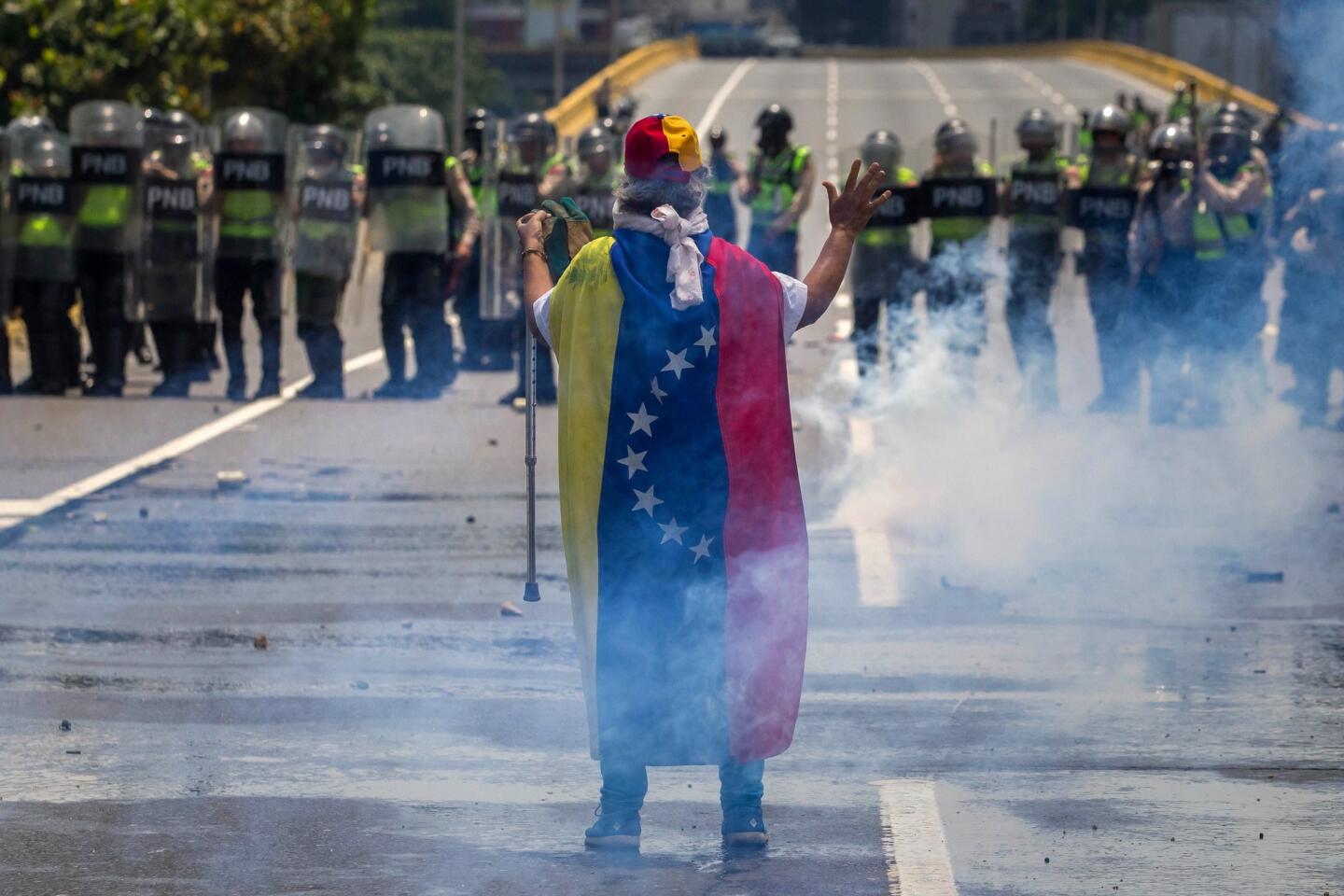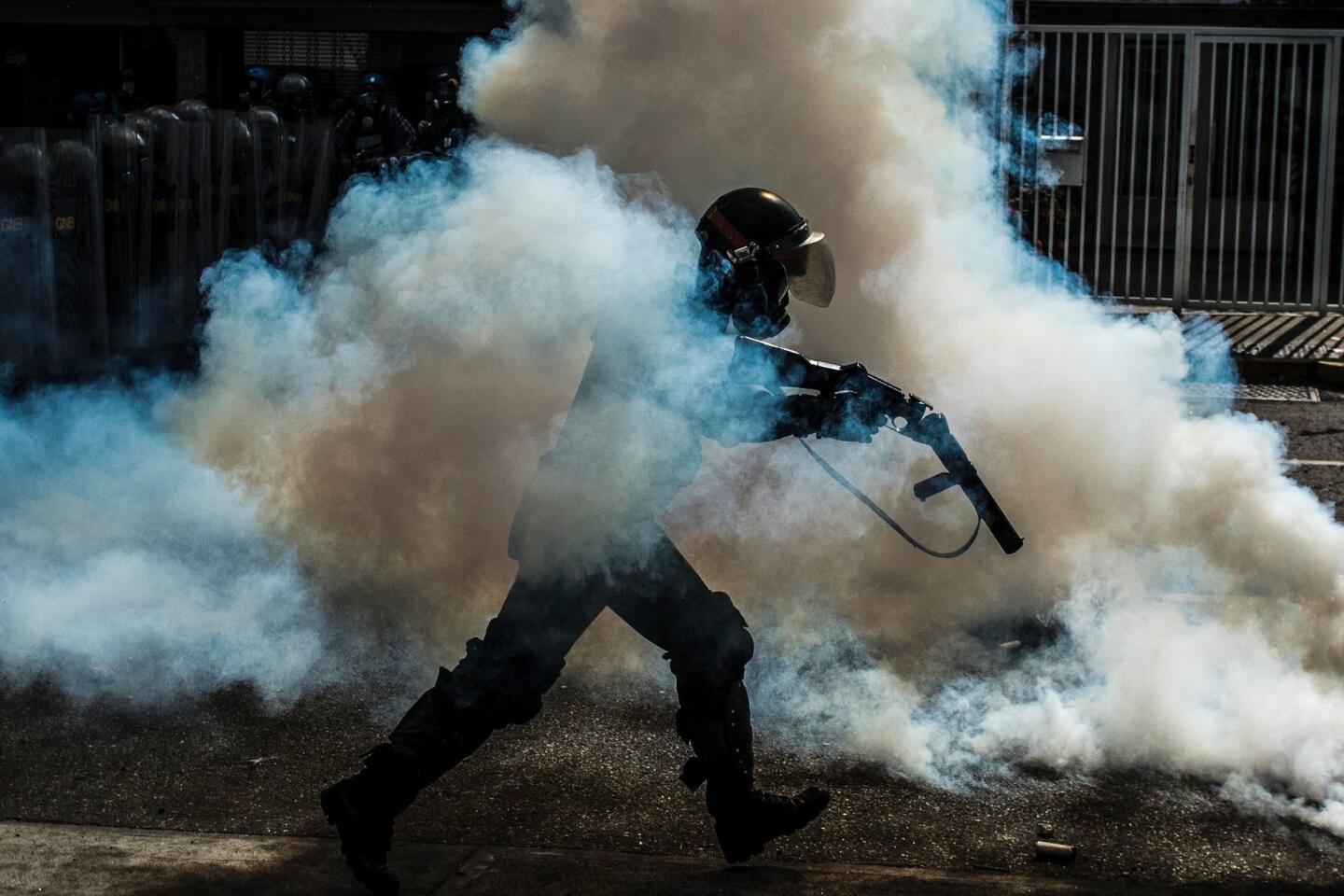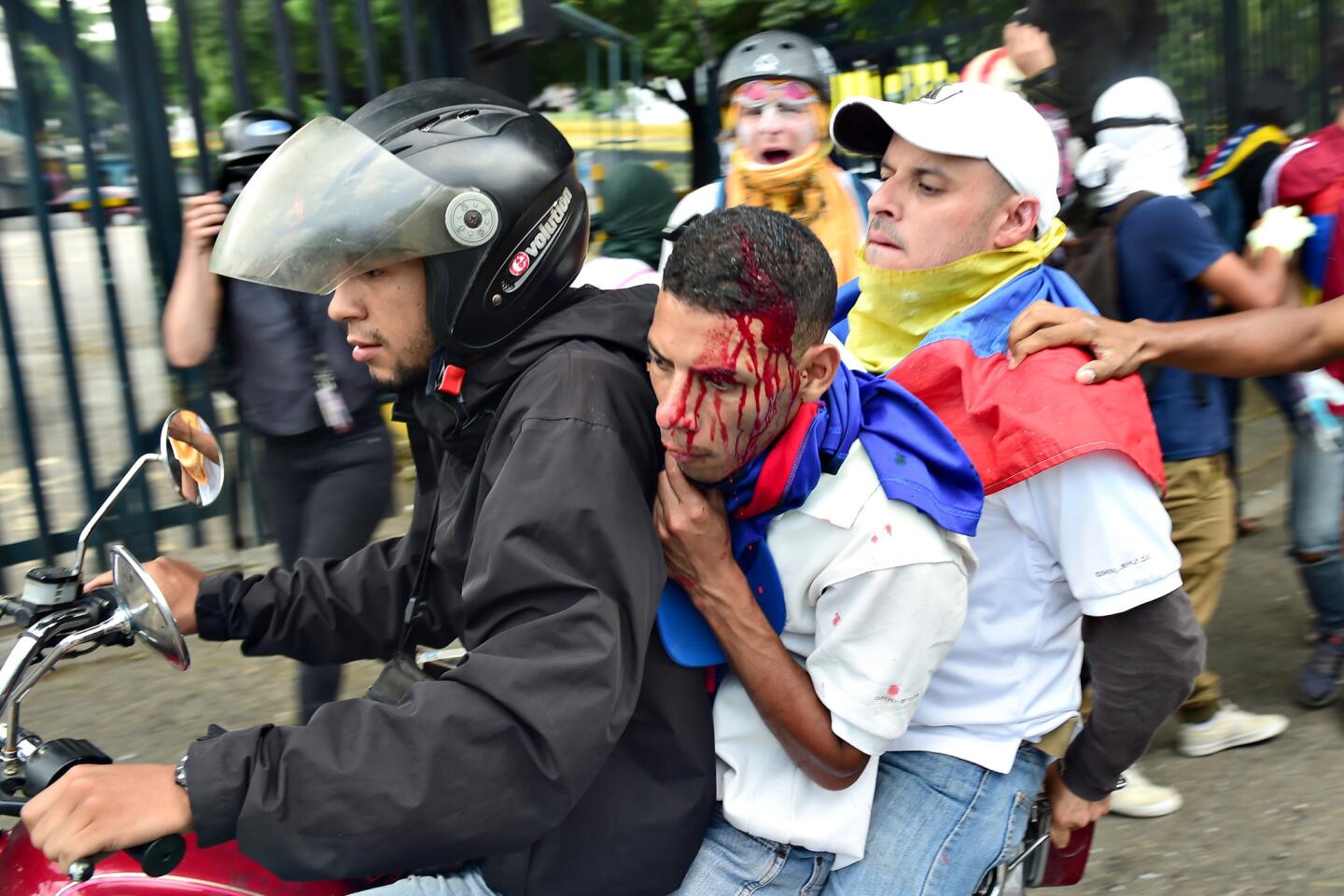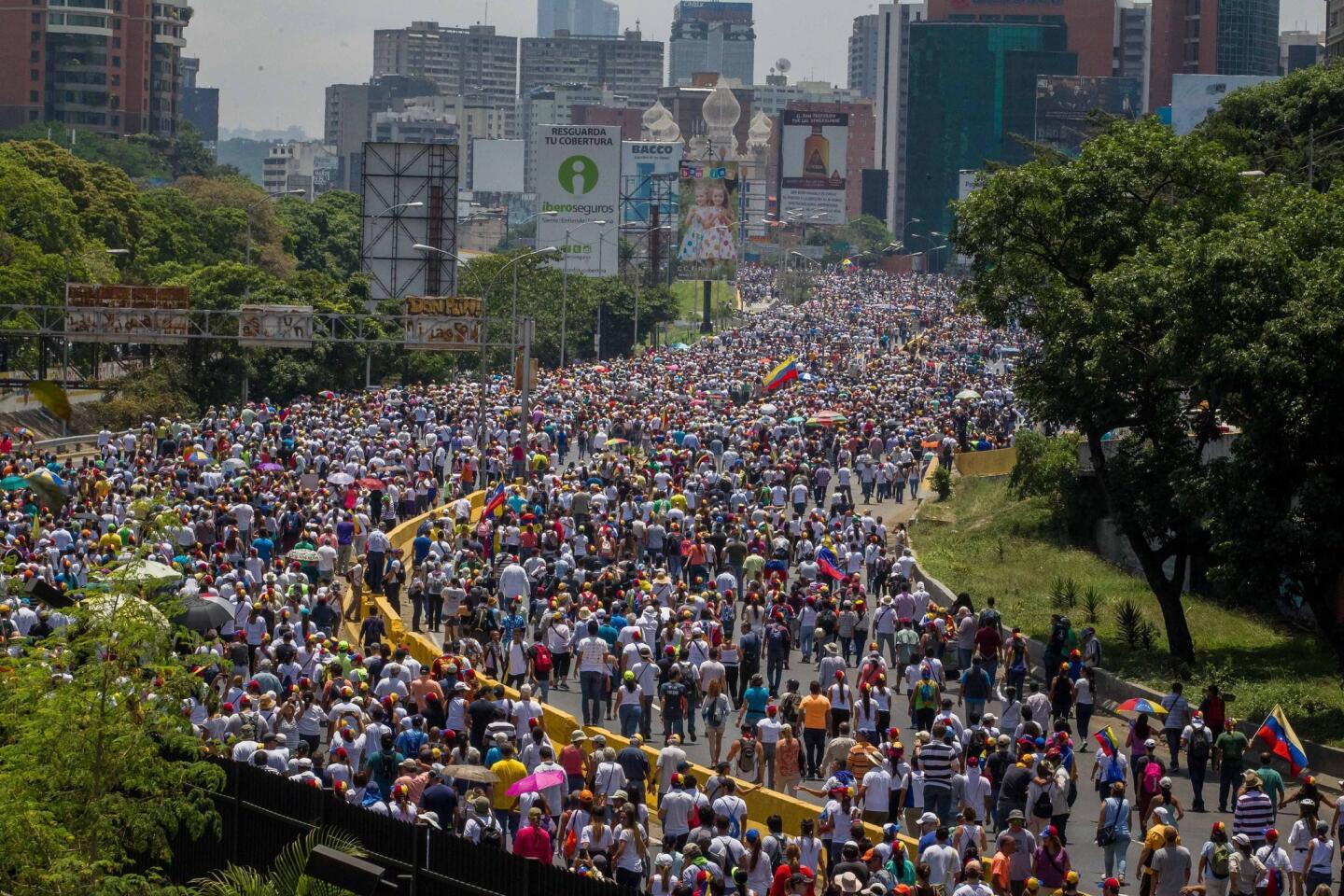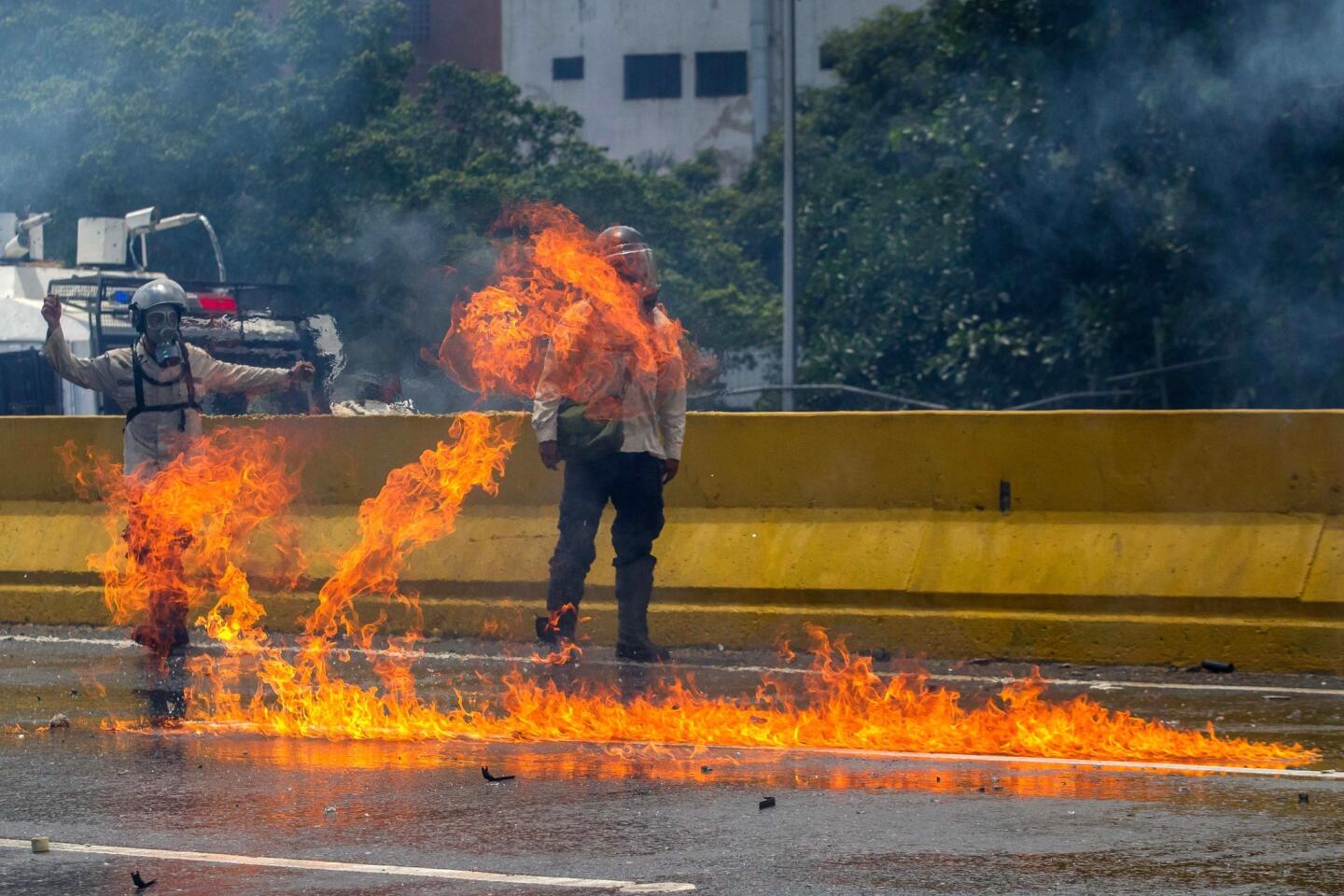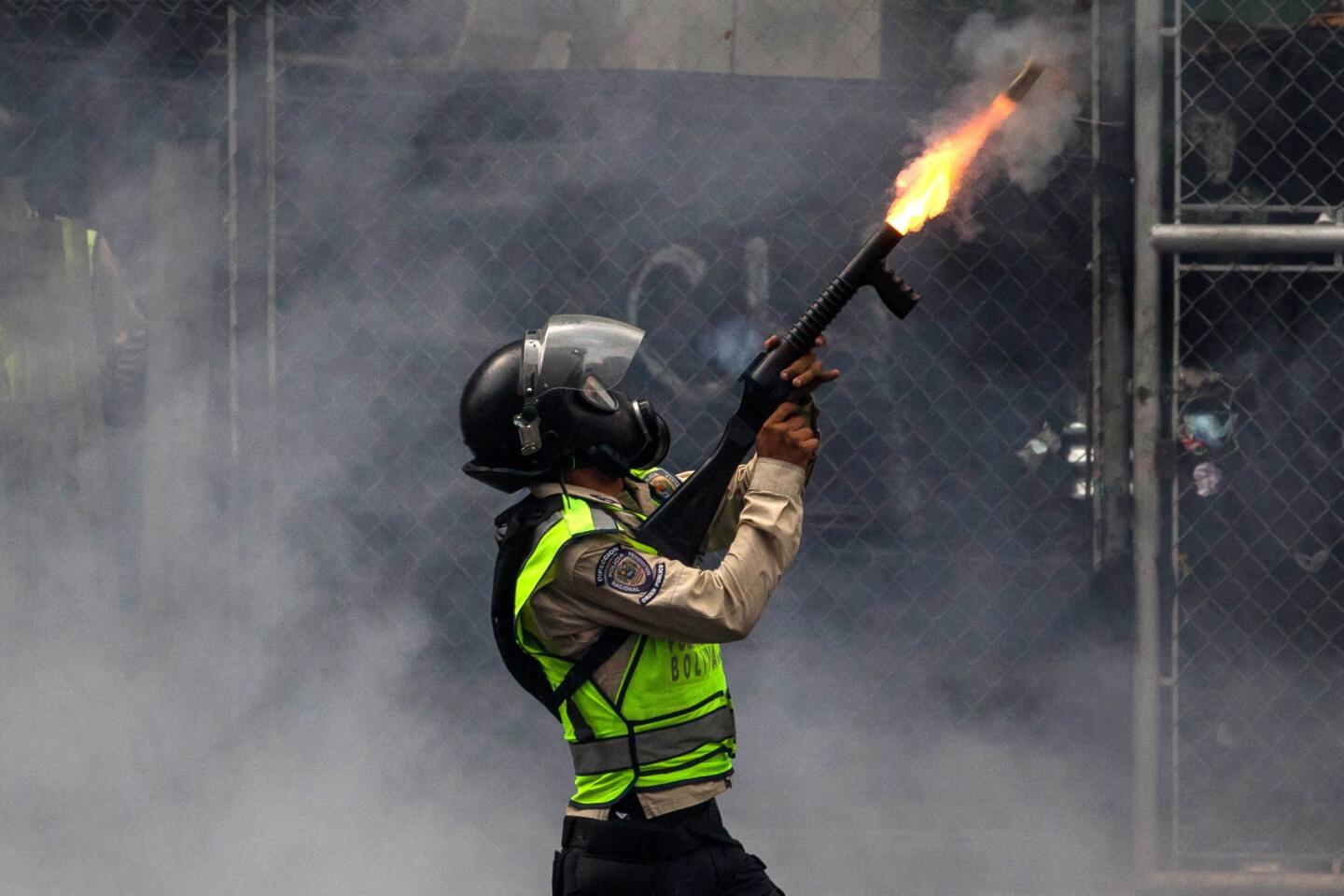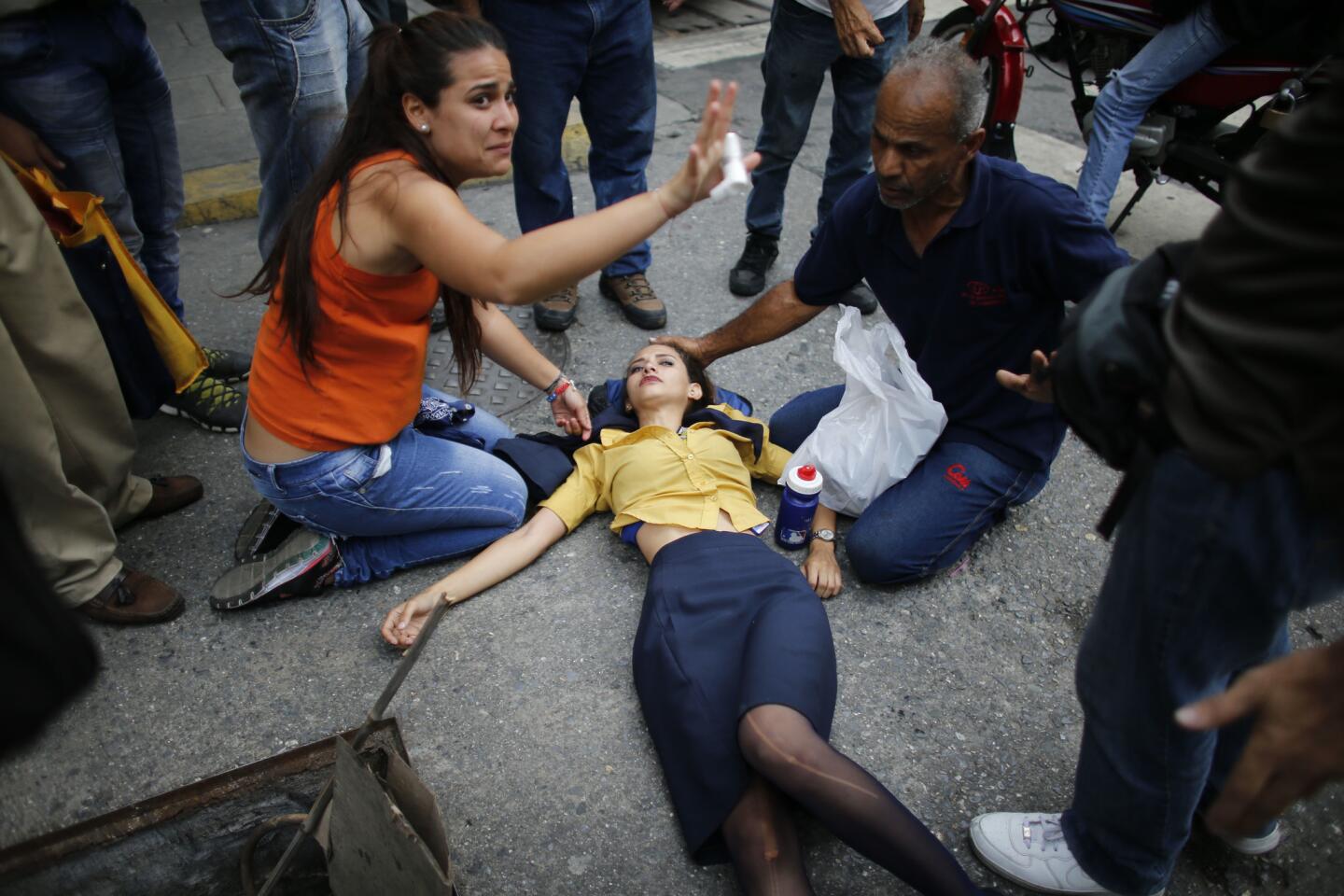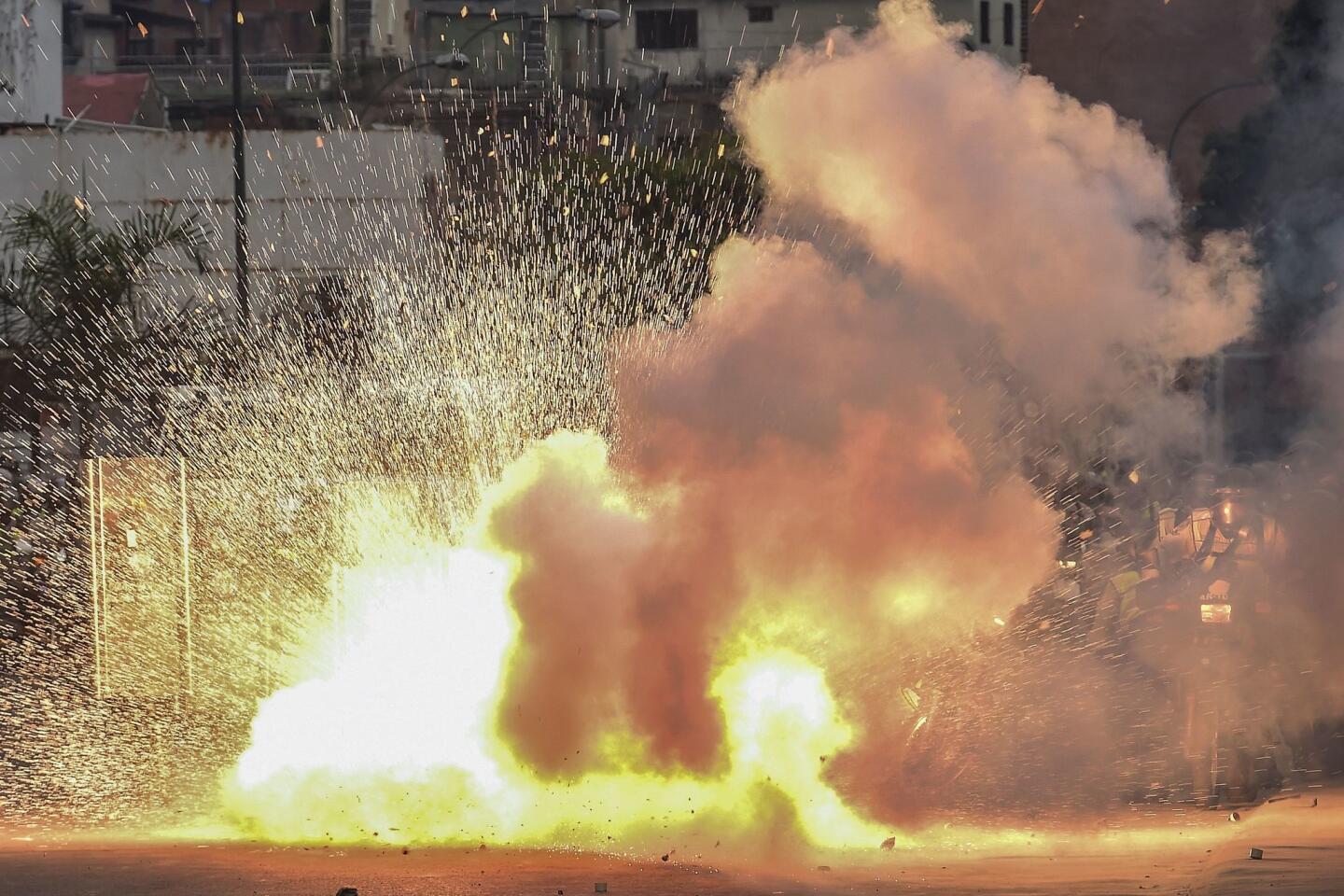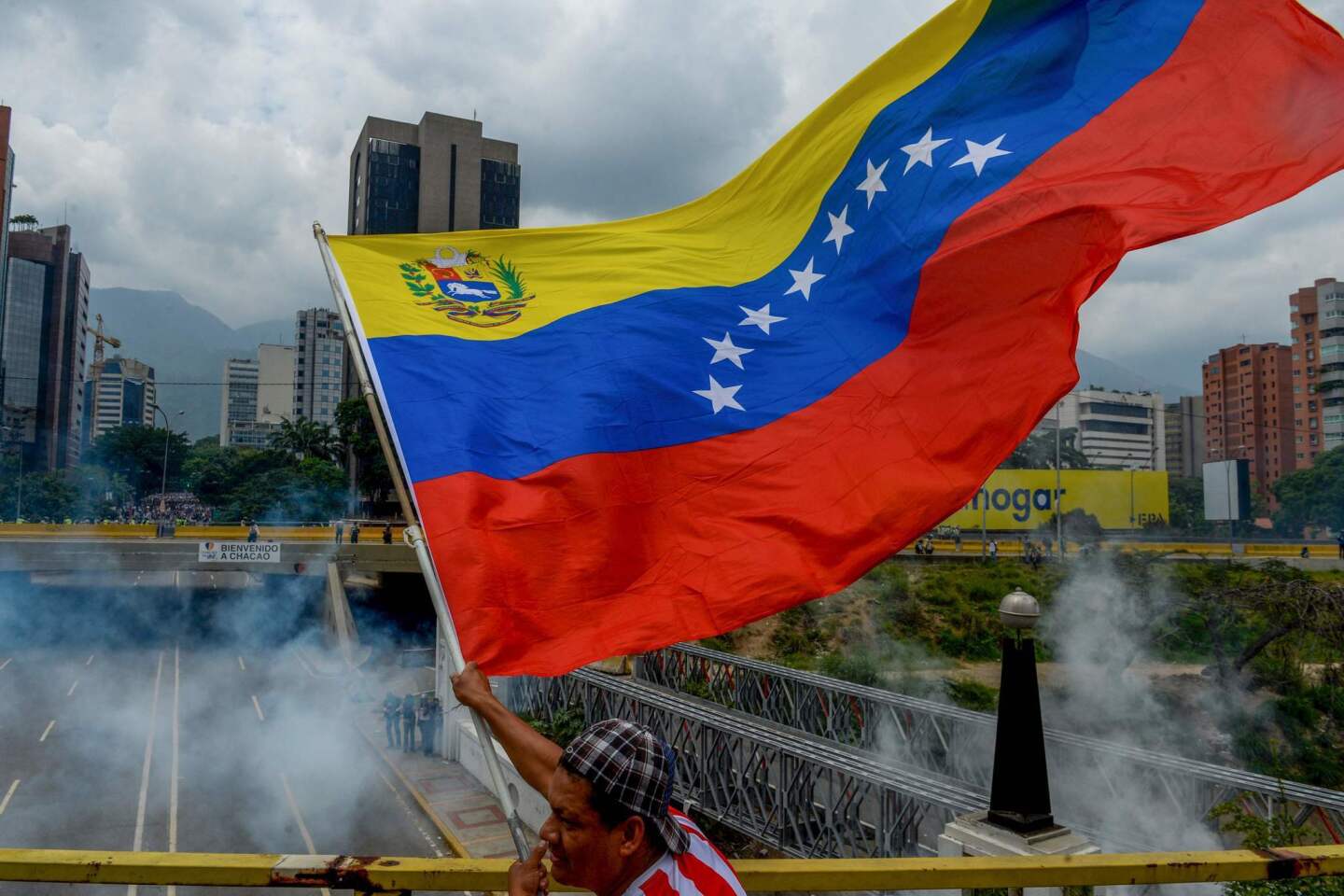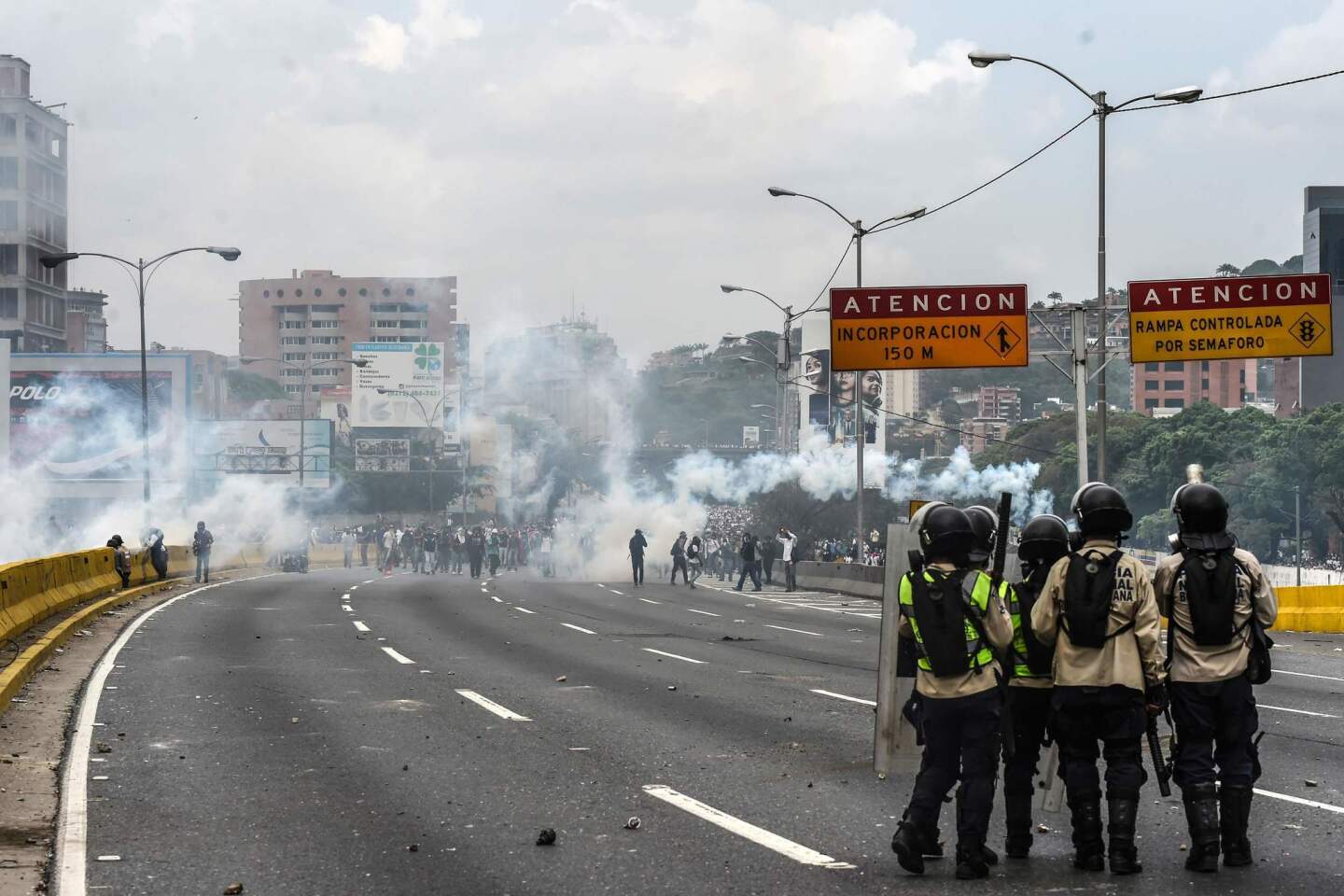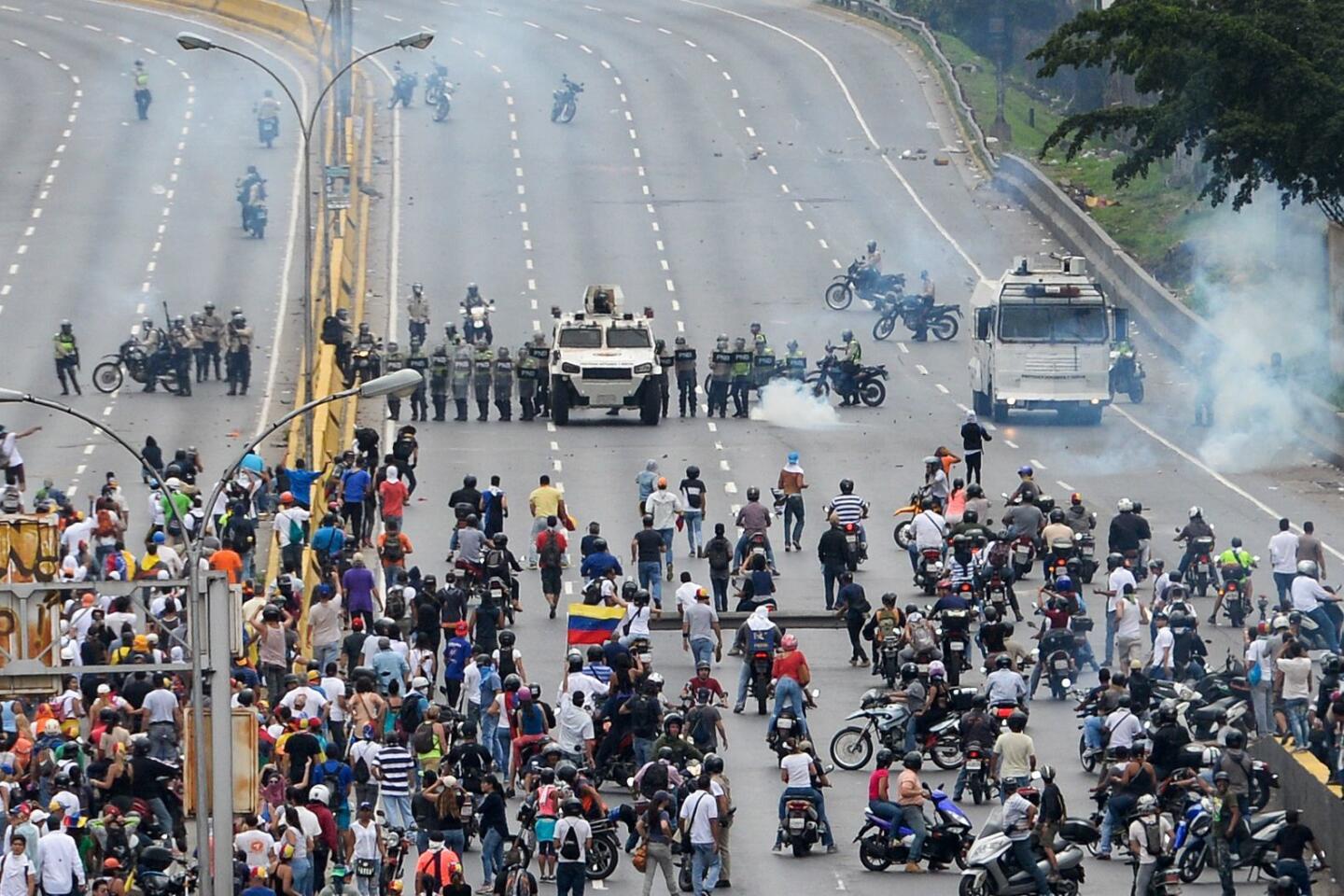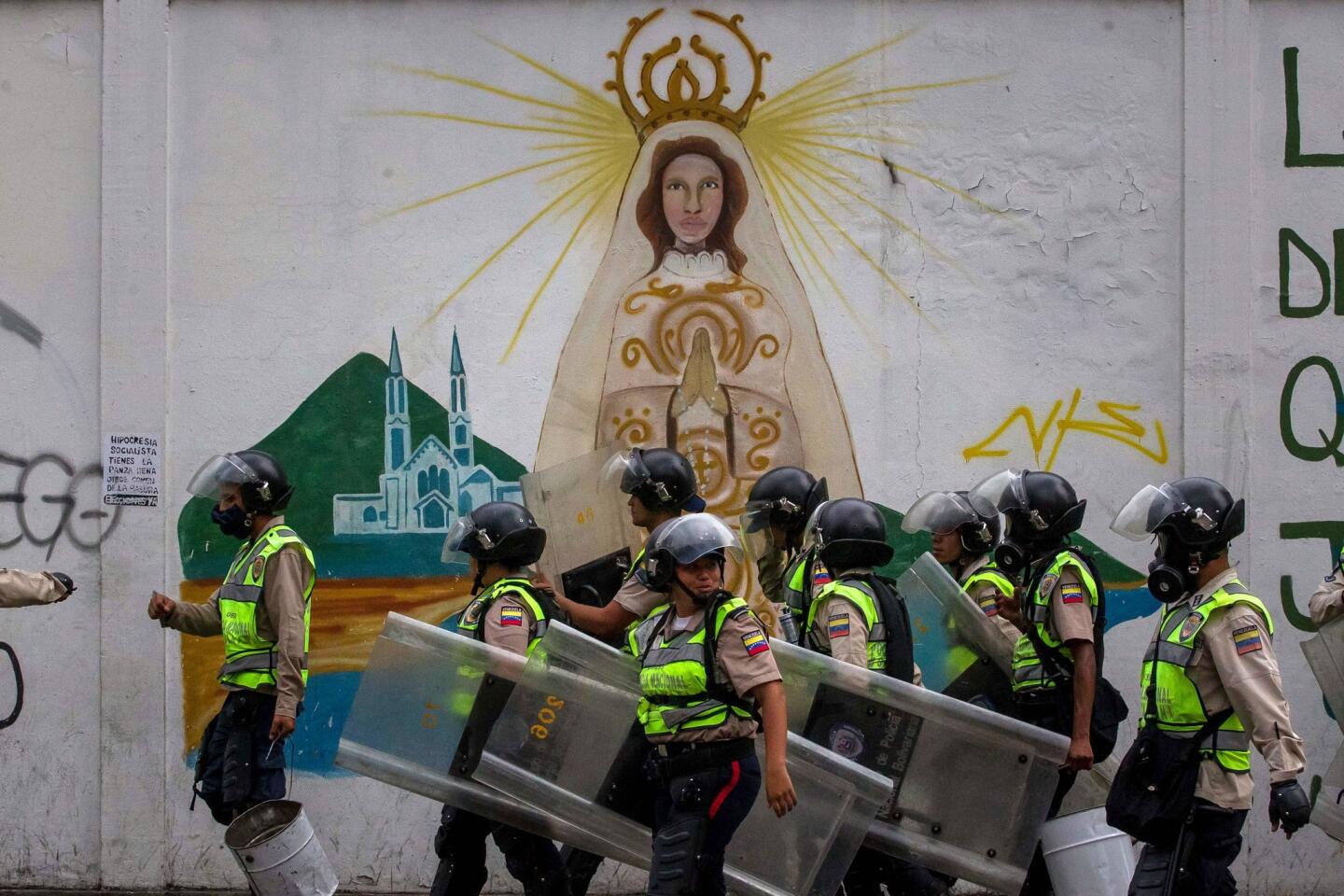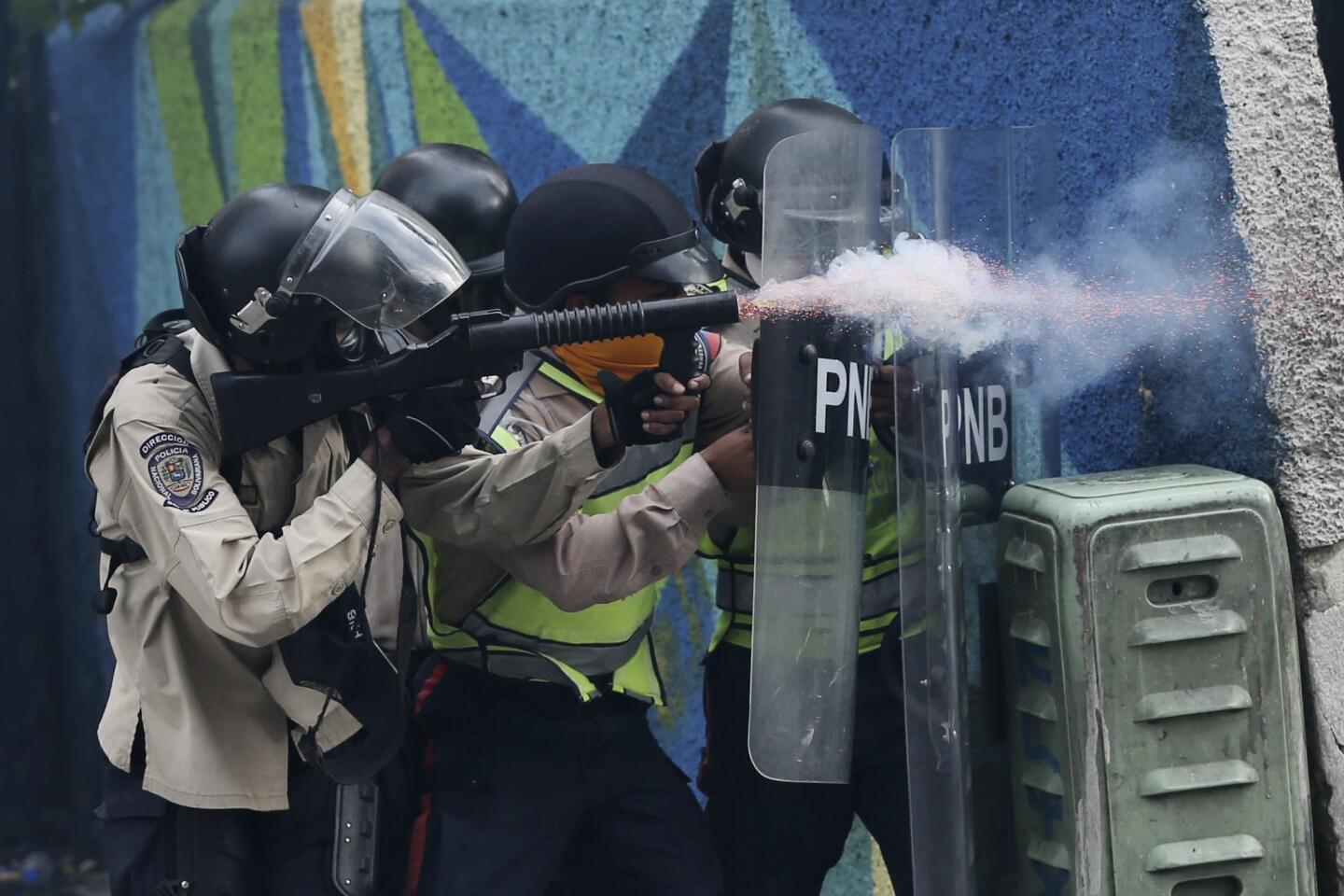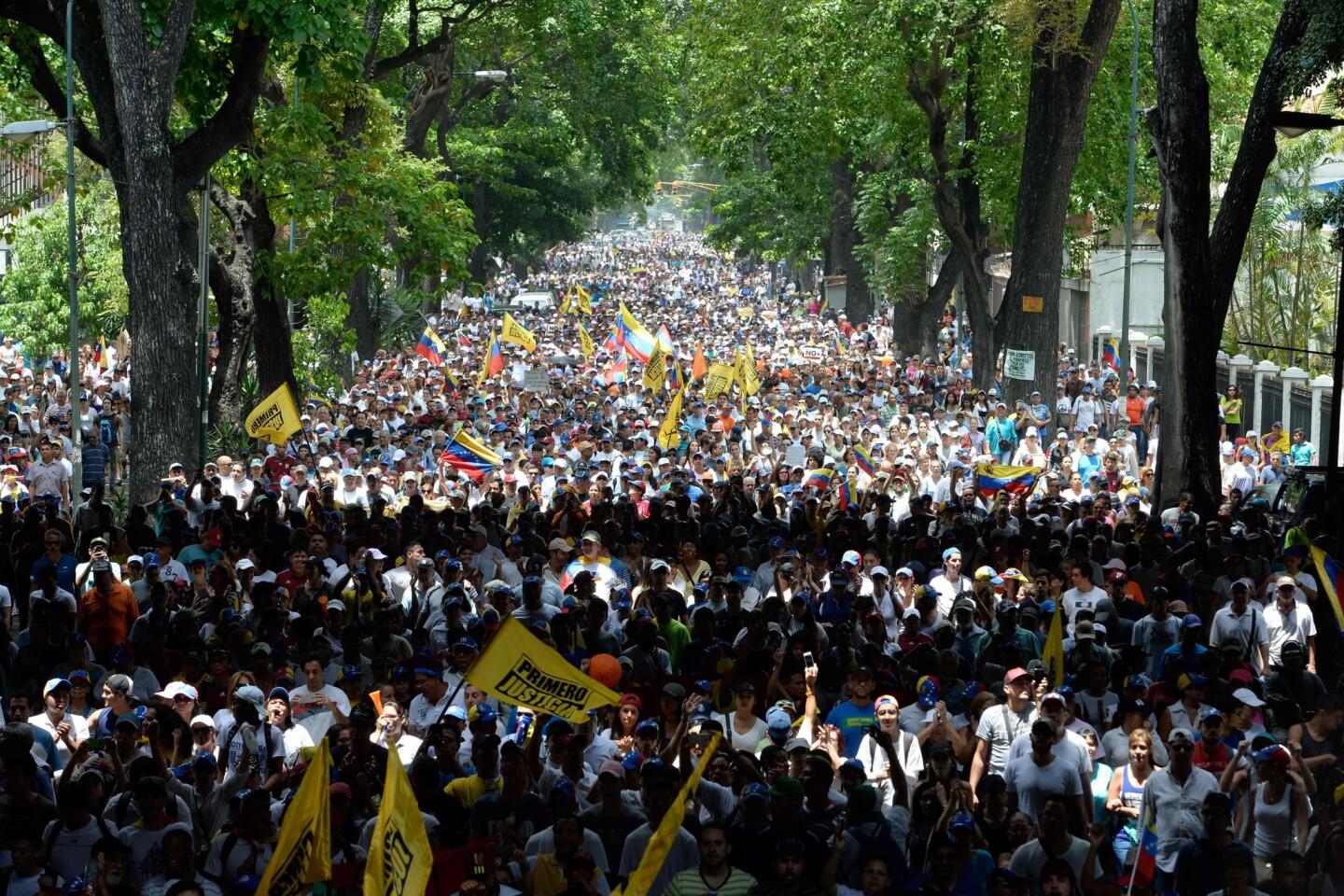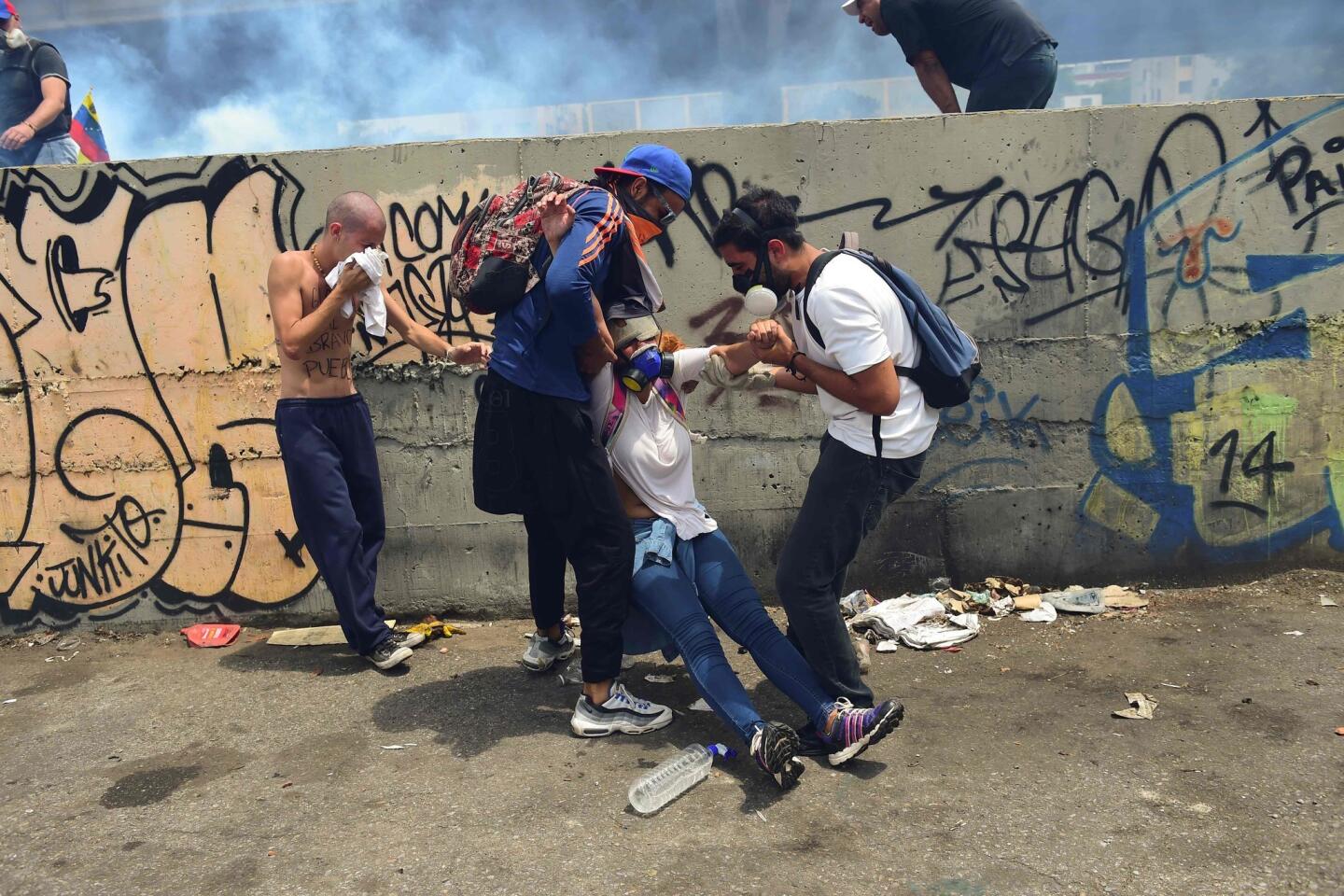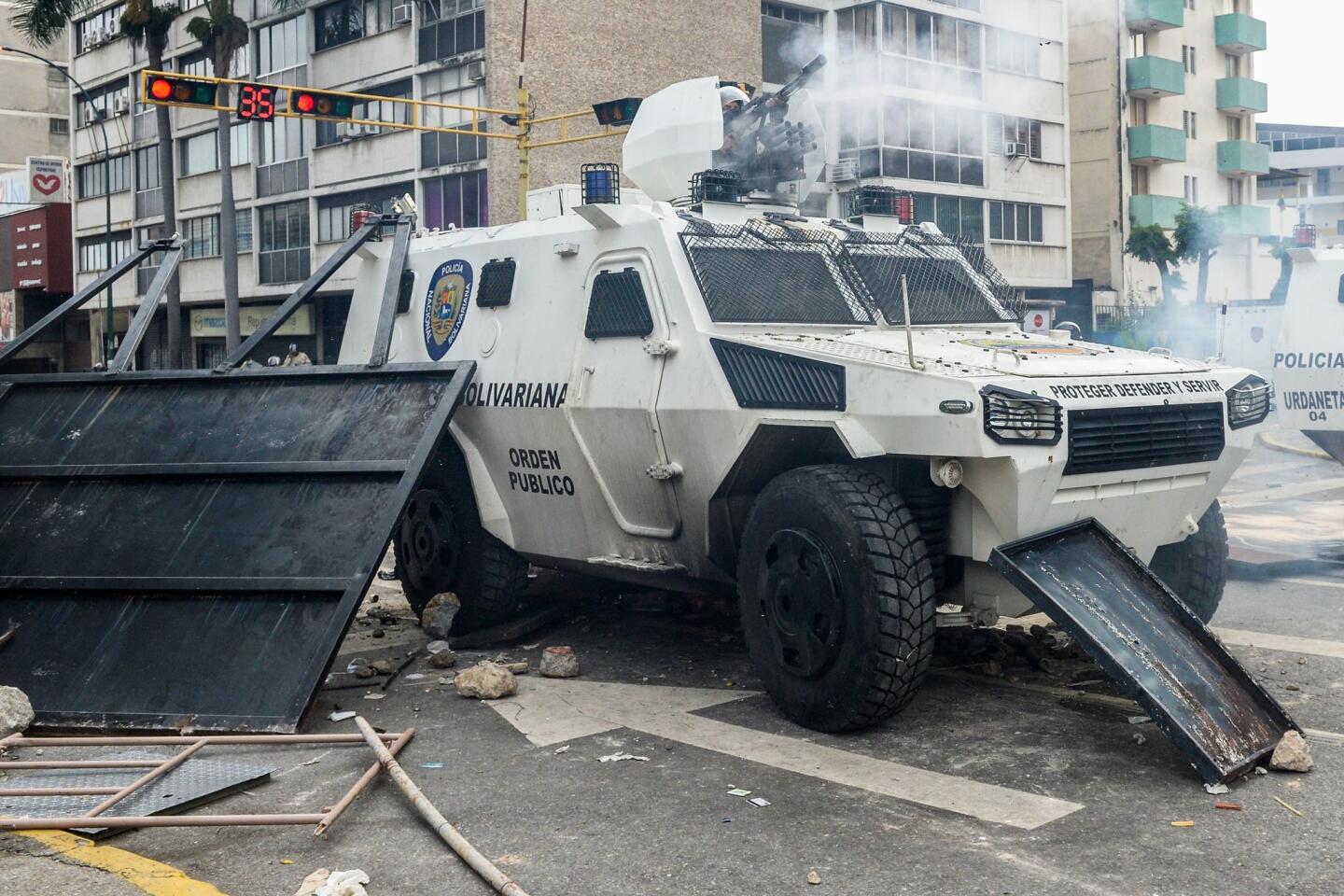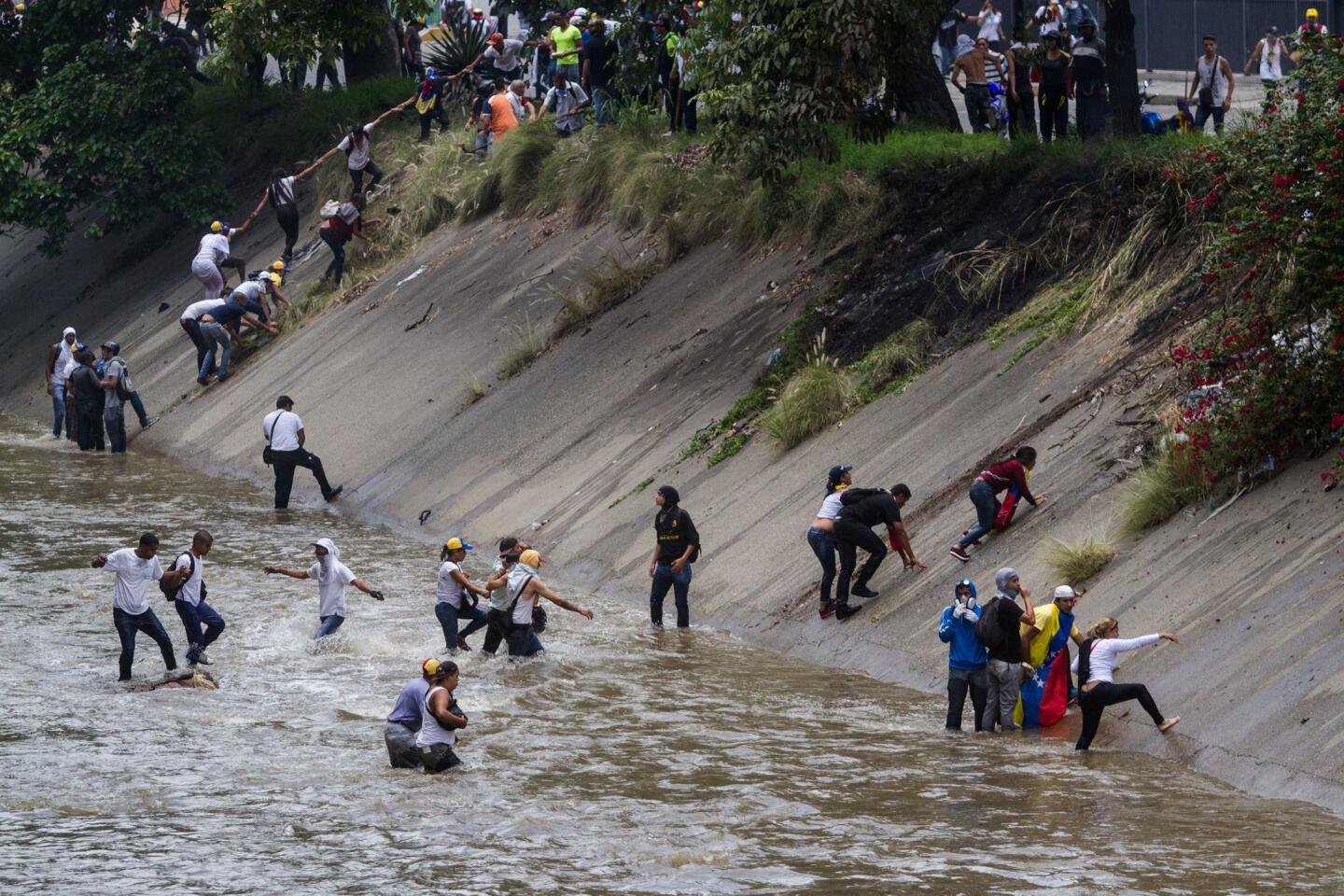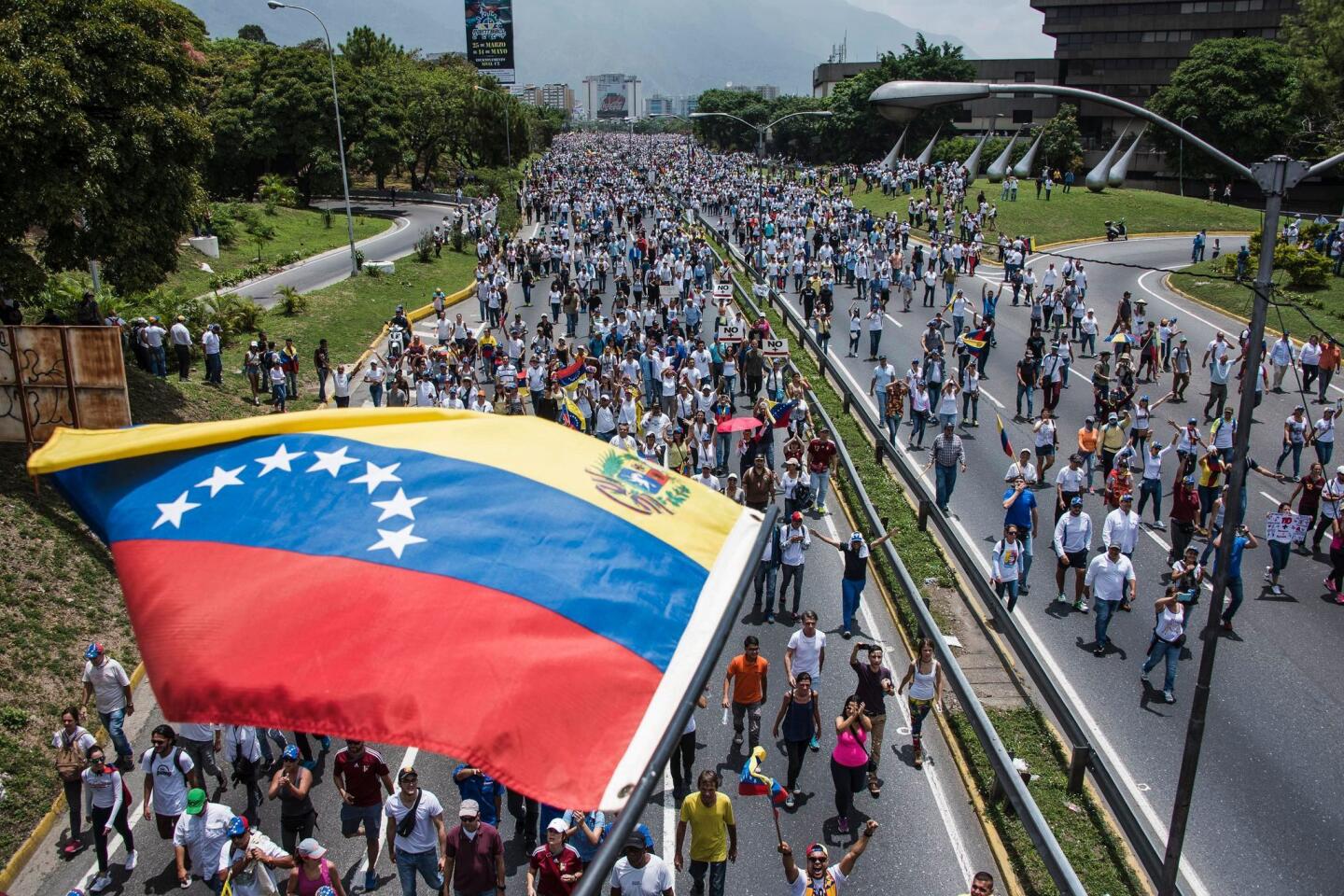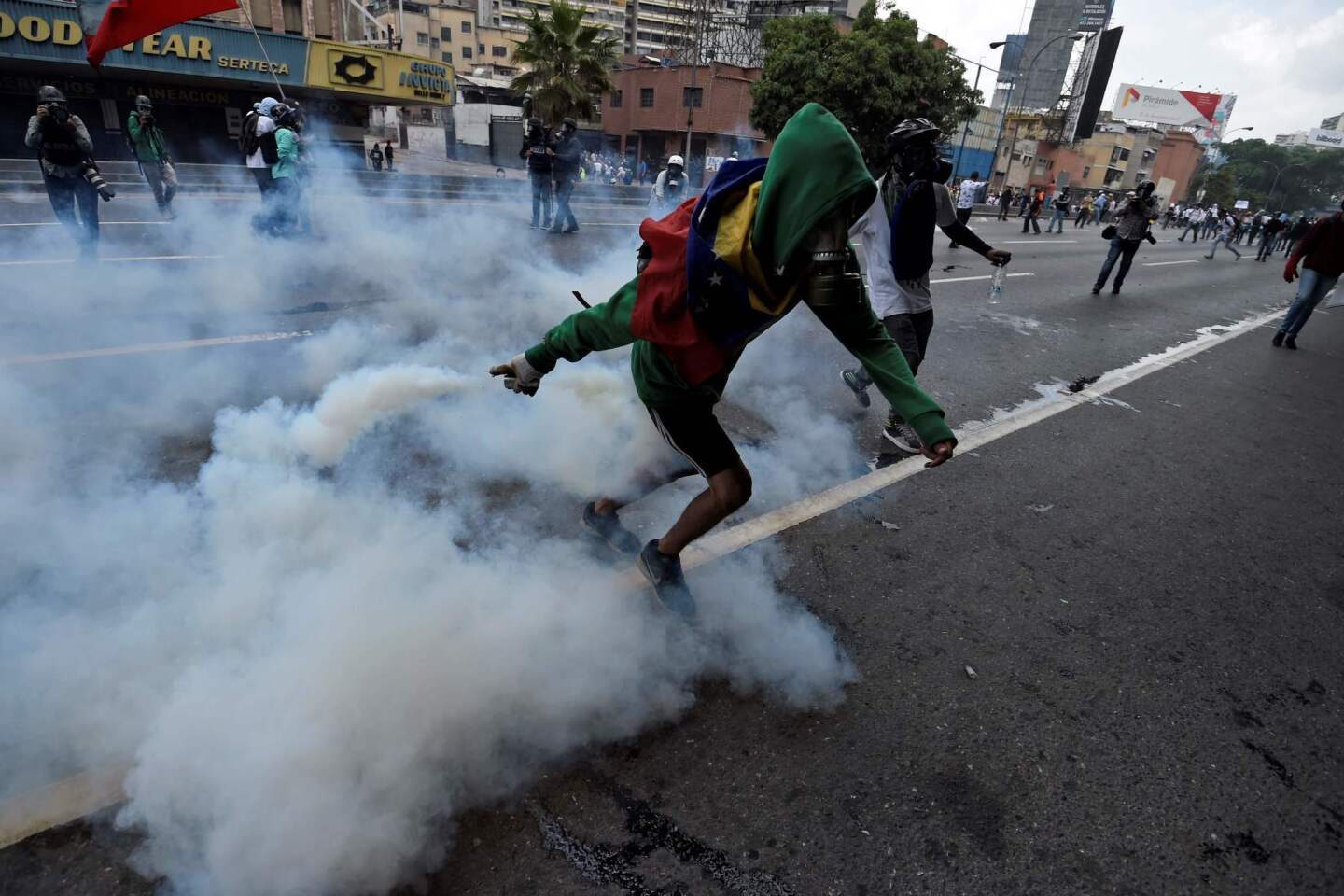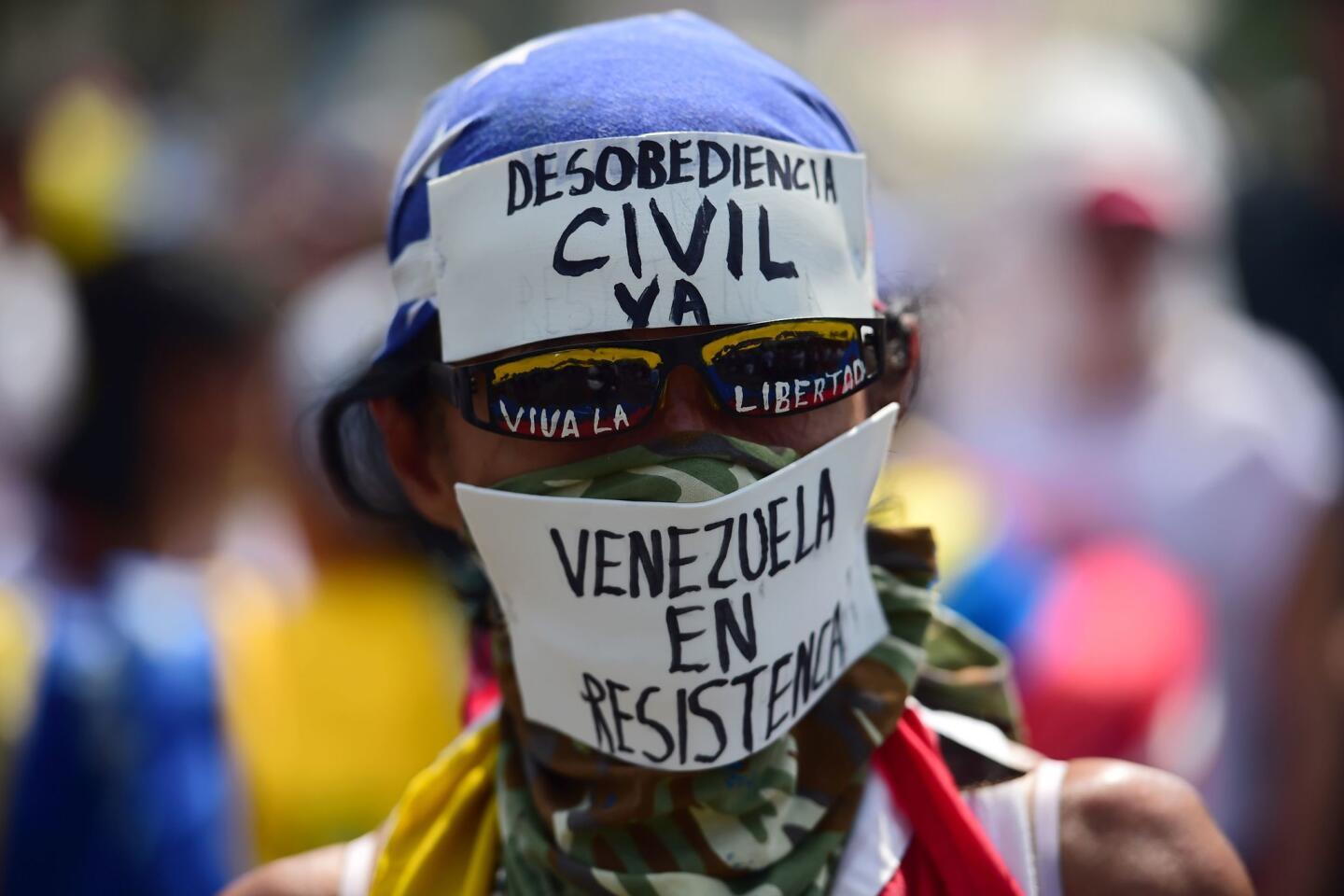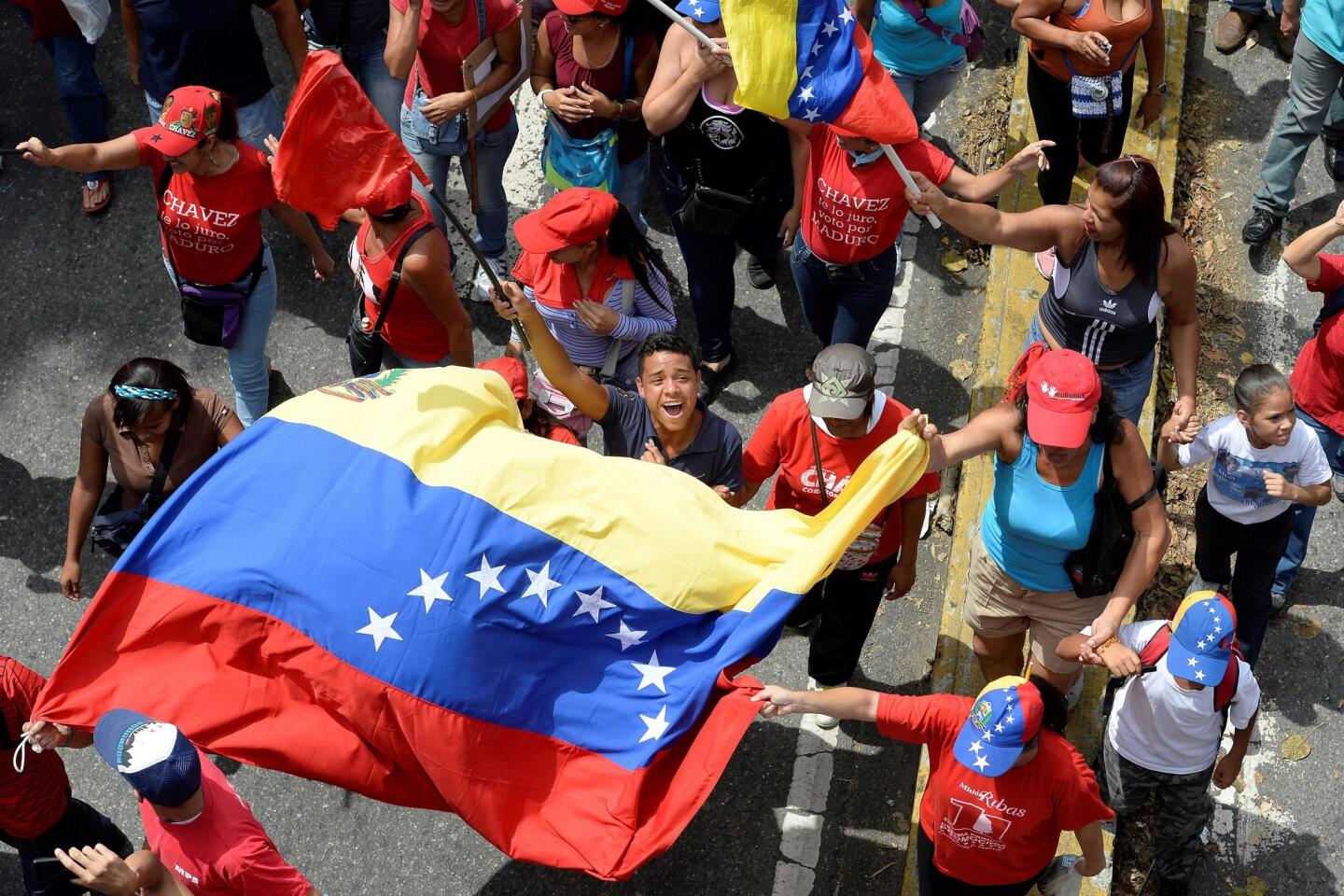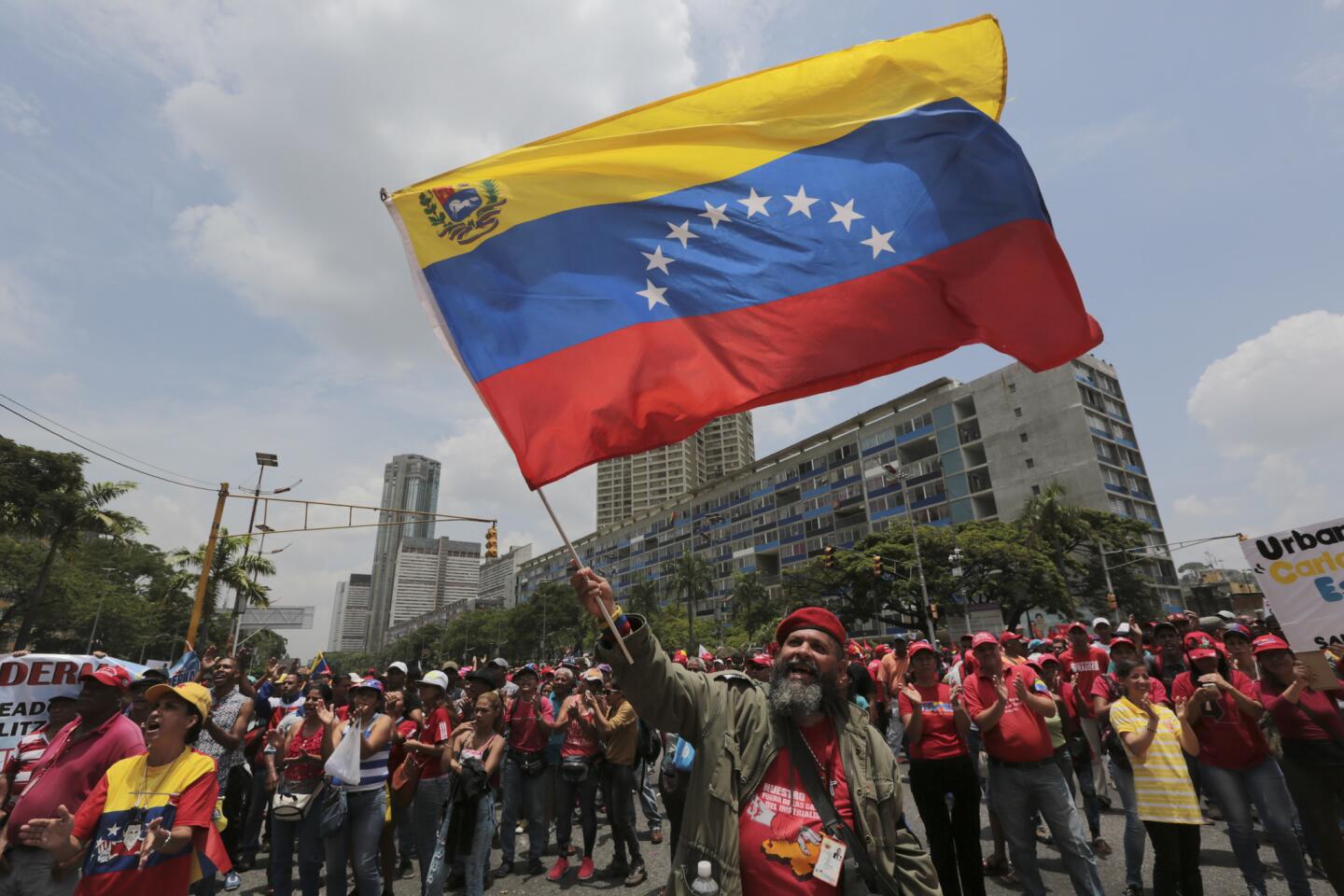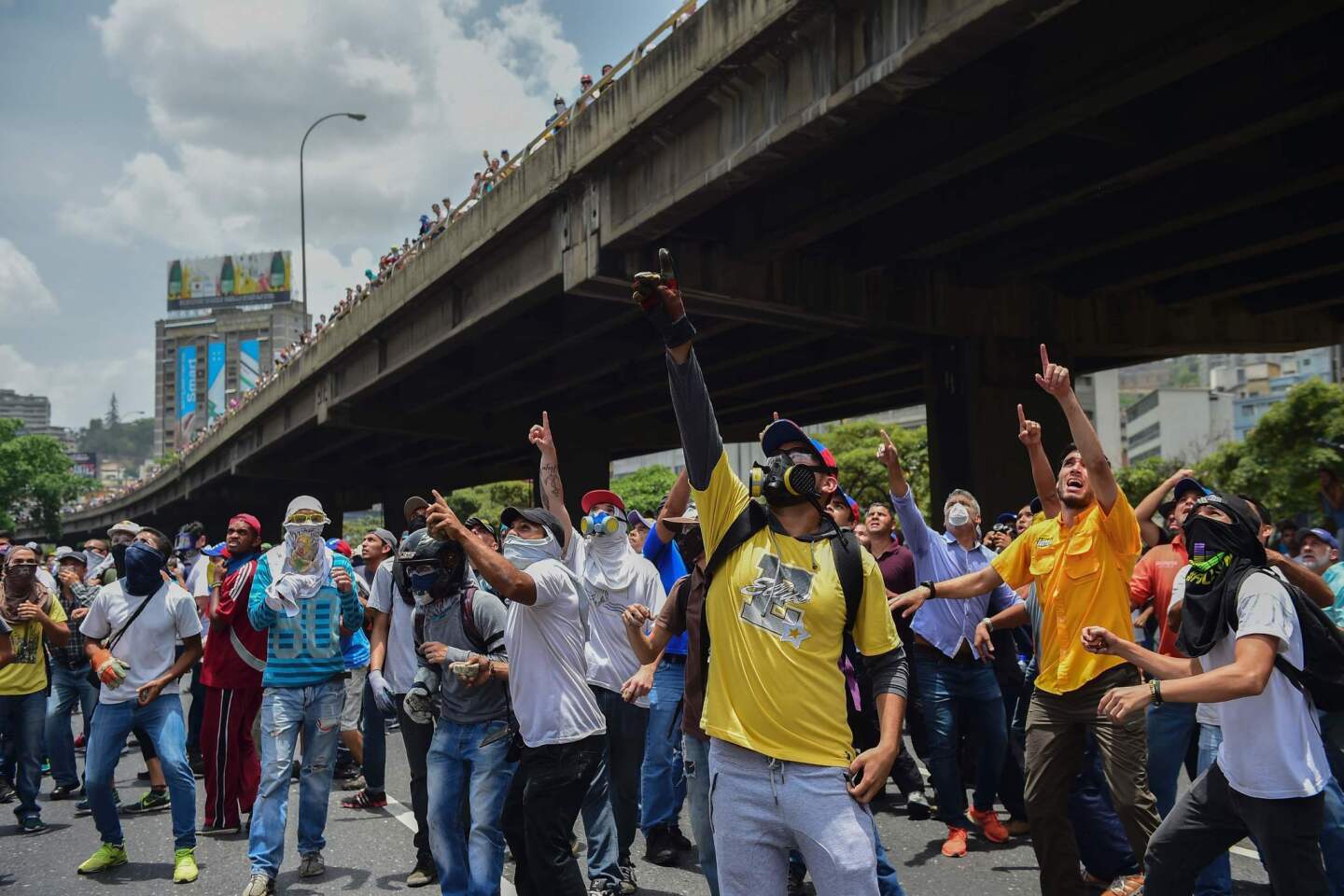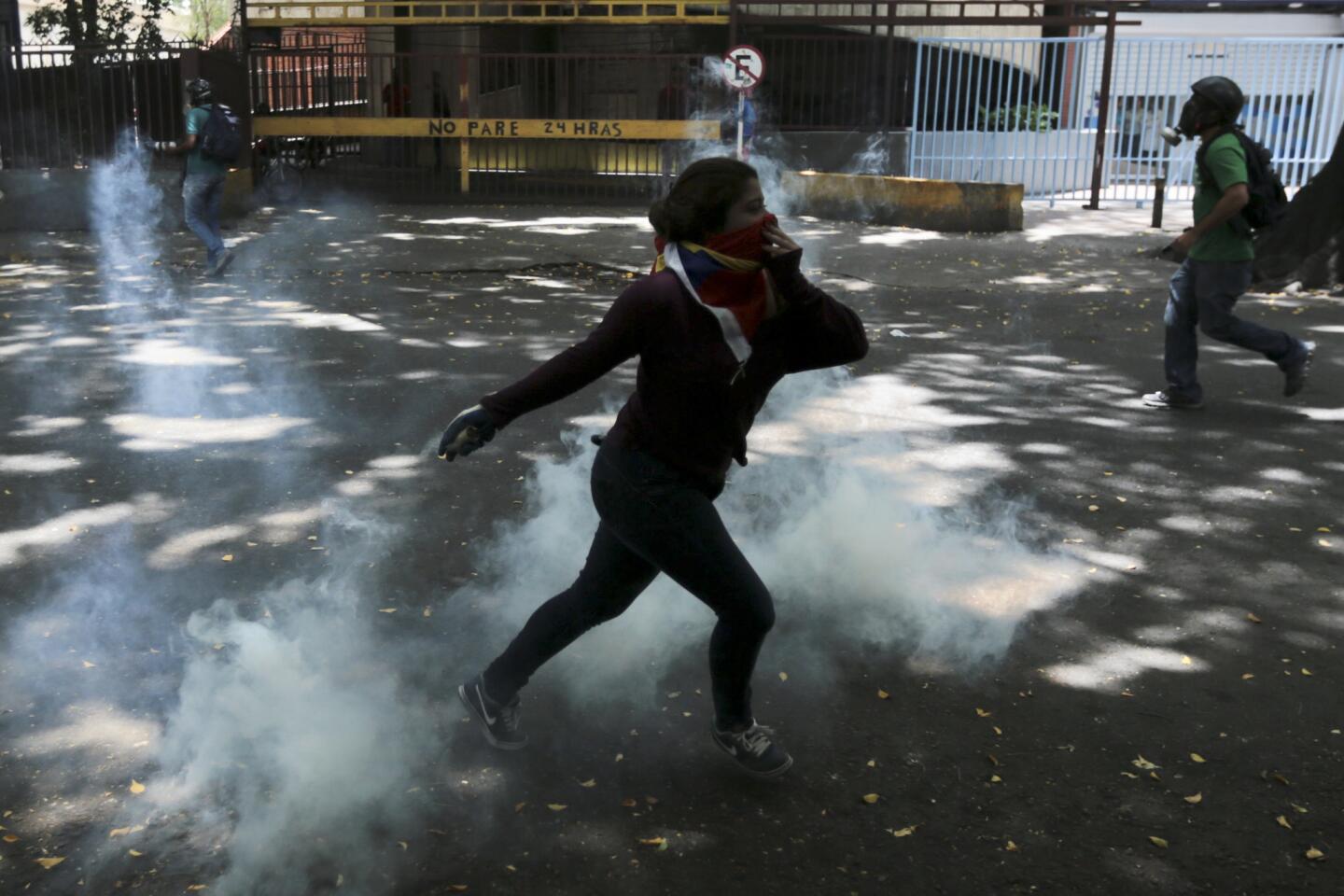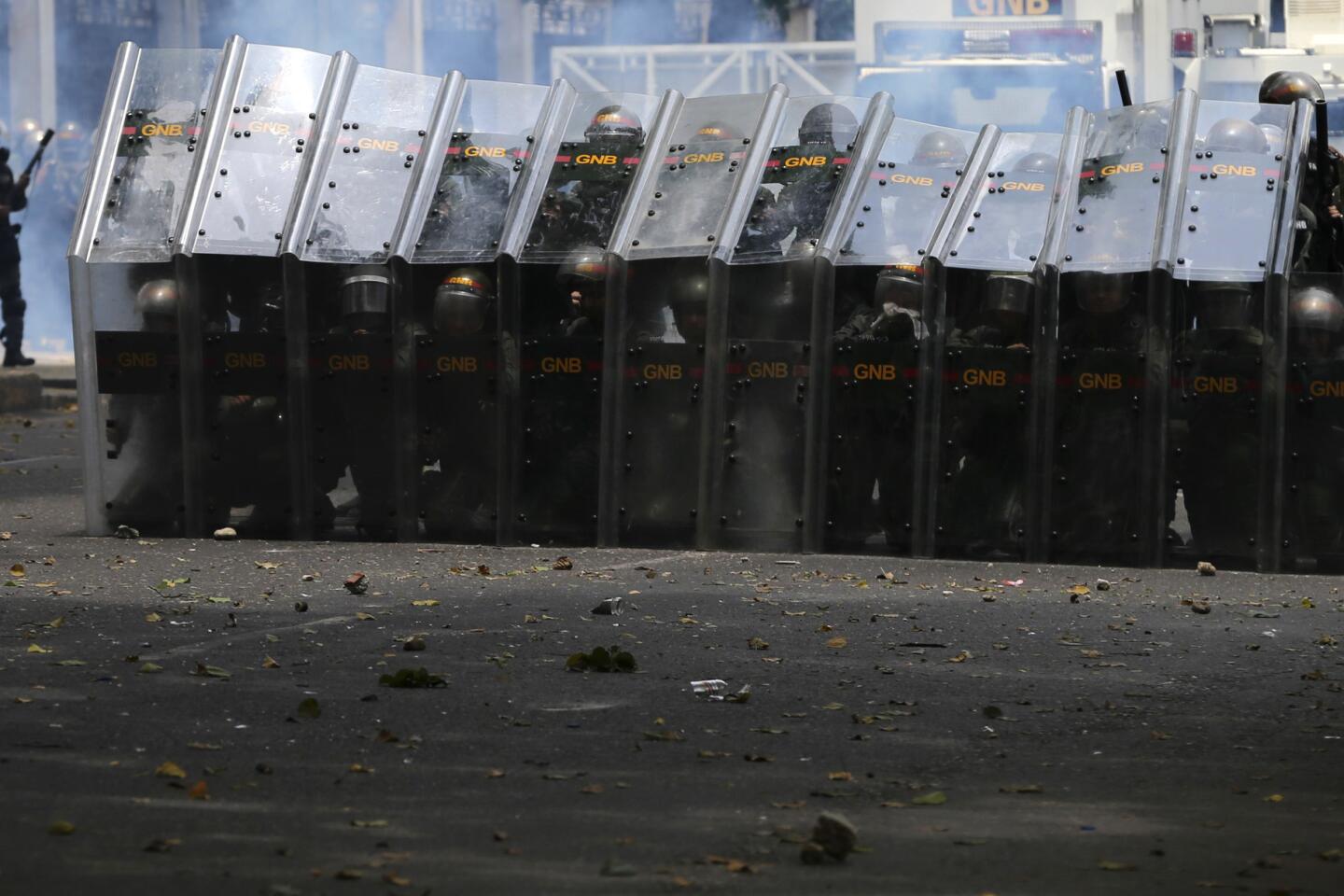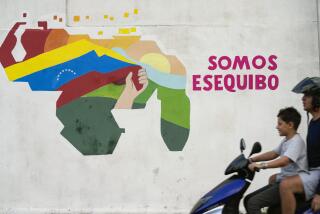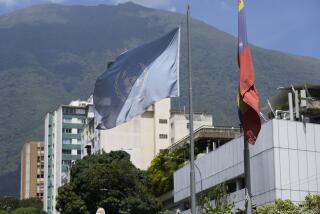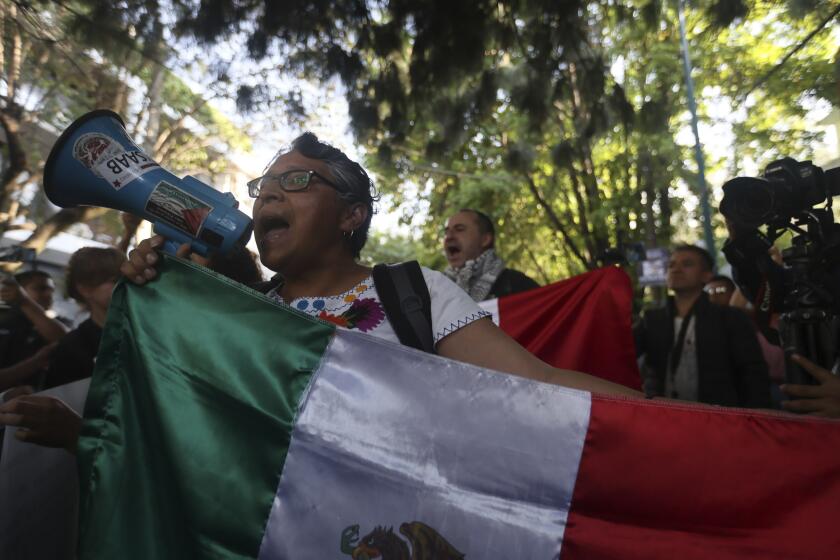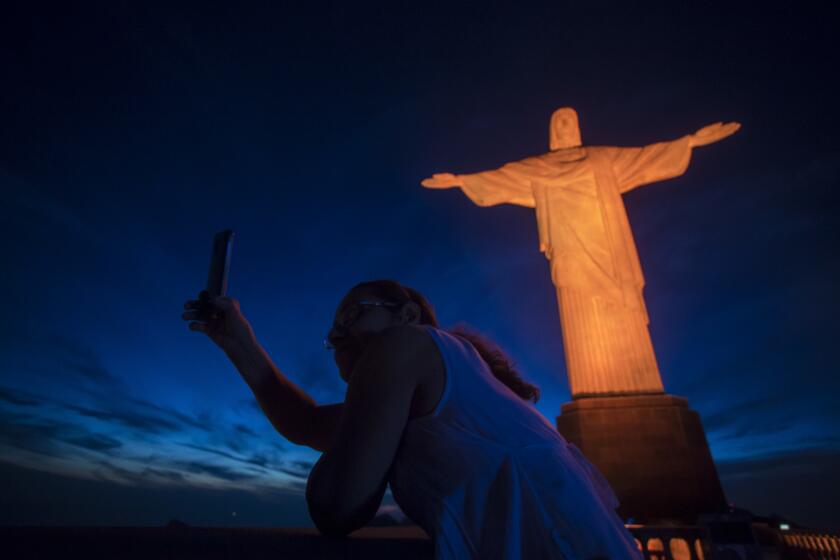In act of defiance, Venezuela may become first country to withdraw from Organization of American States
Venezuela is expected Thursday to formally begin the process of withdrawing from the Organization of American States, the hemispheric cooperation group based in Washington, after the country’s leaders accused the body of interference in domestic affairs.
The decision comes amid monthlong marches, clashes and riots that have left at least 29 people dead across Venezuela. Opponents to President Nicolas Maduro are protesting the lack of food, poor security, delays in elections and abortive efforts by his government to strip the opposition-controlled National Assembly of its power.
The human rights group Venezuelan Penal Forum said that 1,584 protesters have been arrested across the nation since protests began and that 715 are still incarcerated.
The decision follows a 19-10 vote announced Wednesday by the Organization of American States to convene a special meeting of regional foreign ministers to “consider the situation in Venezuela.” No date has been set for the meeting. The body’s general secretary, Luis Almagro, has been critical of Maduro’s crackdown on protesters in recent weeks, calling it undemocratic.
Although a majority of Latin American nations apparently support sanctions against Venezuela for alleged anti-democratic actions, Bolivian President Evo Morales spoke up in defense of Maduro on Thursday, saying Almagro was supporting a “coup d’etat” in Venezuela.
If Venezuela follows through with its decision to quit the 35-nation group, it would become the first country to drop out of the agency since its founding in 1948. The OAS suspended Cuba’s membership in 1962.
In a statement broadcast over state TV Wednesday night, Foreign Minister Delcy Rodriguez said the withdrawal had been ordered by Maduro and would take 24 months to complete. She said that by approving the special meeting, the OAS was engaging in interventionist actions.
“Without a doubt, today we wake up more free, more independent,” Rodriguez said Thursday in a speech broadcast on national TV. “We have broken the chains of Monroe-ism.”
Her reference was to the Monroe Doctrine, the policy dating from the early 1800s by which some U.S. presidents claimed Latin America to be within the U.S. sphere of influence.
Venezuelan authorities and local media also reported that the death toll from a month of nationwide disturbances had risen to 29 late Wednesday.
In other news, 14 prisoners were reported dead and 15 injured in a riot early Tuesday between rival gangs at the Puente Ayala prison in the eastern state of Anzoategui, according to the Venezuelan Prisons Monitor, a civil society group.
Venezuela has been roiled by protests since early April when the Supreme Court ruled that the National Assembly had lost its authority and that its functions would be assumed by Maduro. Although Maduro quickly reversed the decision, his government’s subsequent disqualification of opposition leader Henrique Capriles from running for office until 2032 sparked a new wave of marches.
Protests continued this week when the opposition organized nationwide sit-down demonstrations that sent tens of thousands out to block the nation’s highways, snarling traffic and provoking government responses that included tear gas and rubber bullets fired by police and the national guard.
In a speech broadcast over state TV Wednesday, Maduro accused the protesters of disturbing the peace and inciting violence. But repressive measures by government forces have drawn rebukes from domestic and international human rights bodies, including Human Rights Watch, whose Americas director, Jose Miguel Vivanco, called the government’s response “hugely irresponsible.”
Kraul is a special correspondent.
UPDATES:
3 p.m.: This article was updated to report the number of protesters arrested and comments by Evo Morales and Delcy Rodriguez.
This article was originally published at 9:45 a.m.
More to Read
Start your day right
Sign up for Essential California for news, features and recommendations from the L.A. Times and beyond in your inbox six days a week.
You may occasionally receive promotional content from the Los Angeles Times.
